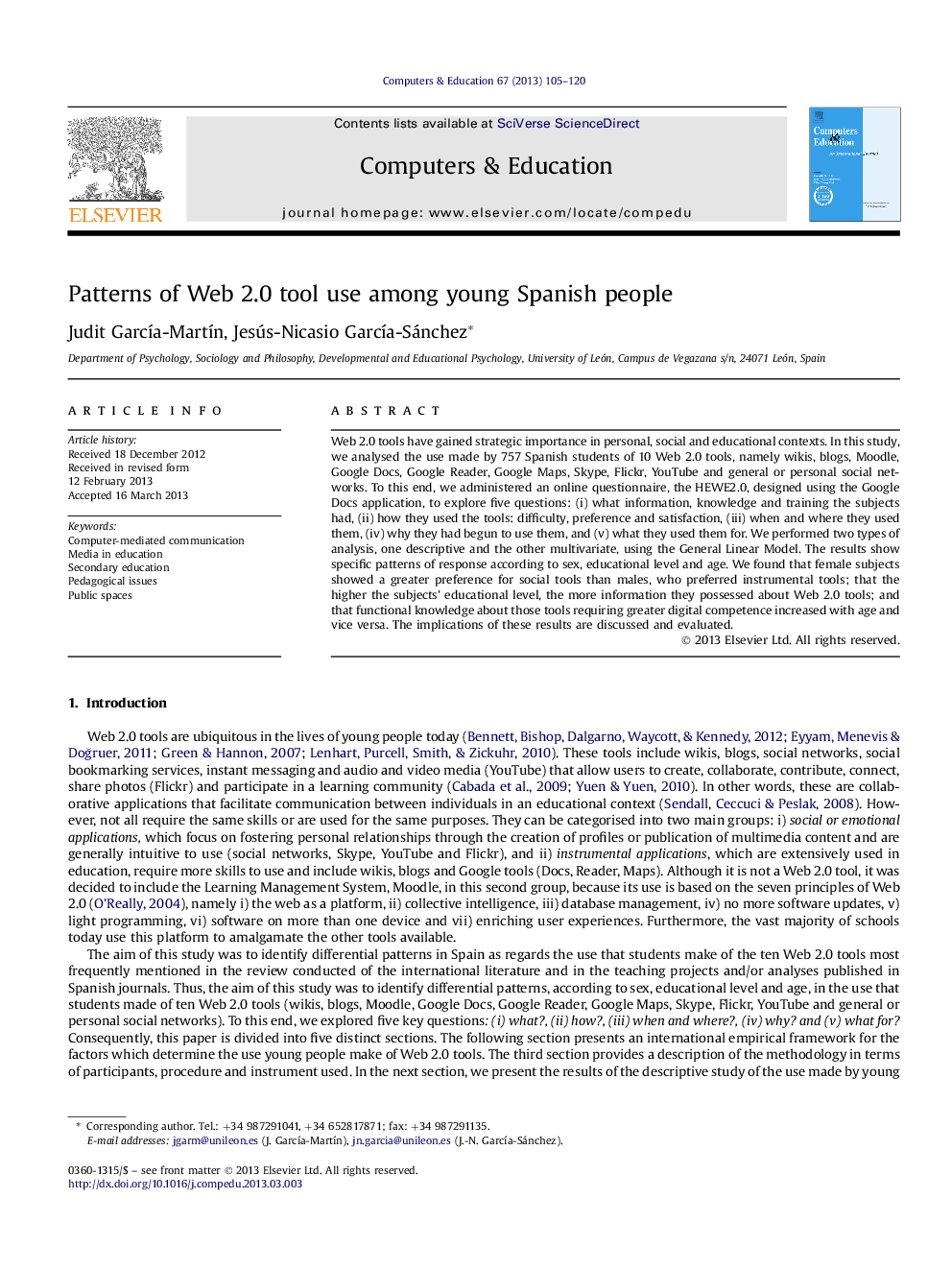| Article ID | Journal | Published Year | Pages | File Type |
|---|---|---|---|---|
| 6835540 | Computers & Education | 2013 | 16 Pages |
Abstract
Web 2.0 tools have gained strategic importance in personal, social and educational contexts. In this study, we analysed the use made by 757 Spanish students of 10 Web 2.0 tools, namely wikis, blogs, Moodle, Google Docs, Google Reader, Google Maps, Skype, Flickr, YouTube and general or personal social networks. To this end, we administered an online questionnaire, the HEWE2.0, designed using the Google Docs application, to explore five questions: (i) what information, knowledge and training the subjects had, (ii) how they used the tools: difficulty, preference and satisfaction, (iii) when and where they used them, (iv) why they had begun to use them, and (v) what they used them for. We performed two types of analysis, one descriptive and the other multivariate, using the General Linear Model. The results show specific patterns of response according to sex, educational level and age. We found that female subjects showed a greater preference for social tools than males, who preferred instrumental tools; that the higher the subjects' educational level, the more information they possessed about Web 2.0 tools; and that functional knowledge about those tools requiring greater digital competence increased with age and vice versa. The implications of these results are discussed and evaluated.
Keywords
Related Topics
Social Sciences and Humanities
Social Sciences
Education
Authors
Judit GarcÃa-MartÃn, Jesús-Nicasio GarcÃa-Sánchez,
